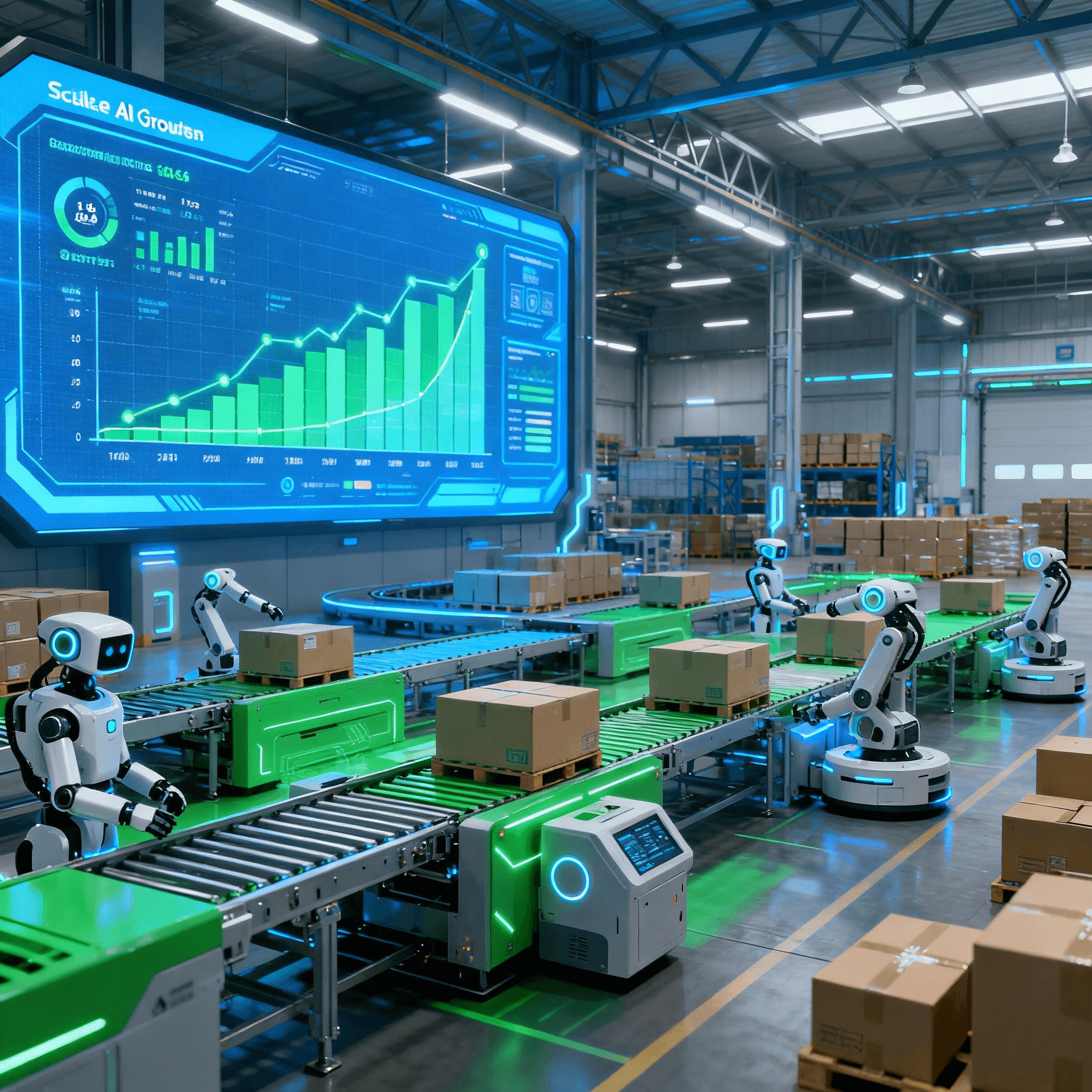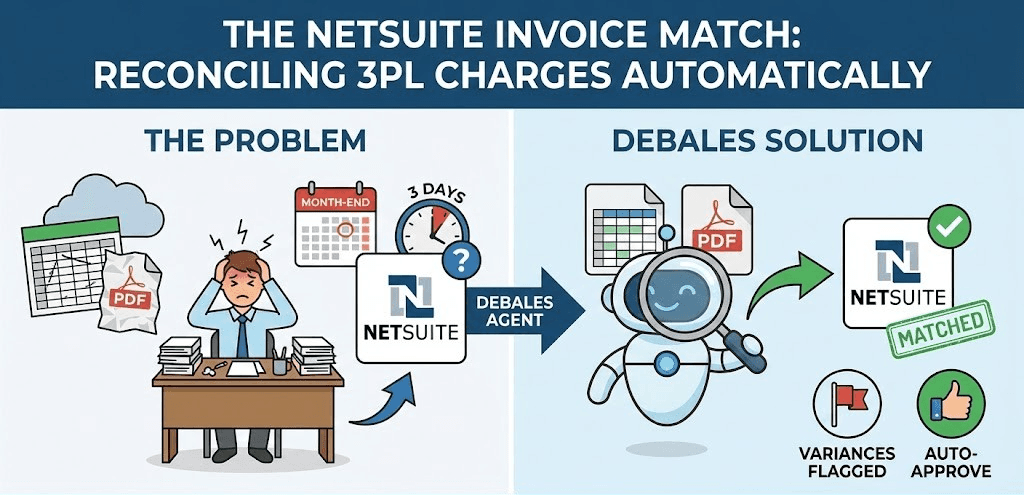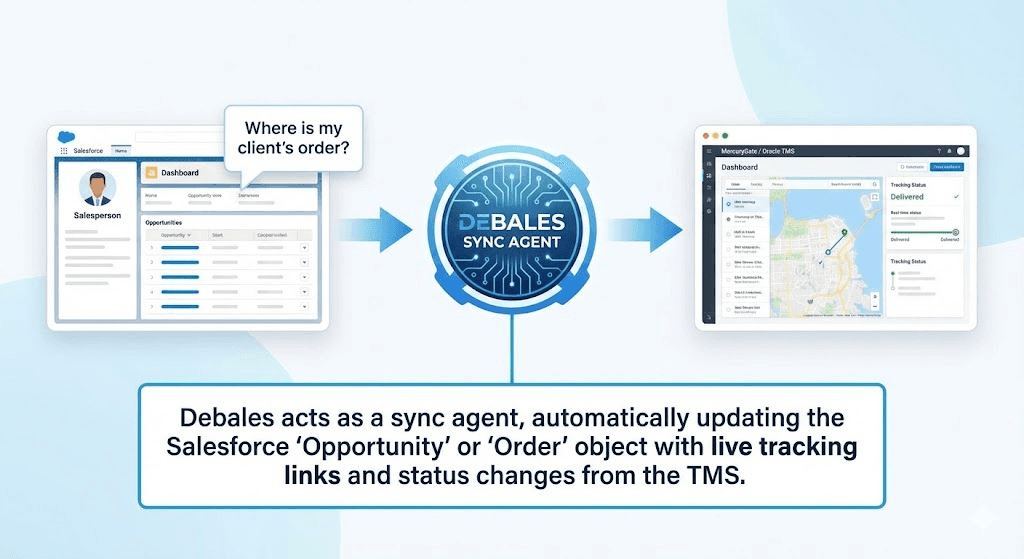How Scalable Are AI Logistics Solutions as Your Business Grows?
Tuesday, 7 Oct 2025
|
How Scalable Are AI Logistics Solutions as Your Business Grows?
In today's rapidly evolving logistics sector, Artificial Intelligence (AI) is increasingly becoming a game-changer. From streamlining operations to enhancing customer experiences, AI offers significant advantages across the board. But as a logistics executive, you may be wondering: How scalable are AI logistics solutions as your business grows? Will these technologies adapt seamlessly to your changing needs, or will they become bottlenecks as you scale?
The short answer: AI solutions in logistics are not only scalable, but they also offer transformative benefits at every stage of business growth. However, successful scaling requires thoughtful implementation, continuous optimization, and alignment with your long-term goals. This article will provide you with actionable insights on how AI logistics solutions can scale alongside your business, complete with real-world examples and critical business implications.
Understanding AI Logistics Solutions
Before diving into scalability, let's first establish what AI logistics solutions typically involve:
Automation of Routine Tasks: AI automates repetitive tasks like route planning, inventory management, and data analysis, reducing human error and boosting efficiency.
Predictive Analytics: AI models analyze historical data to predict demand patterns, potential disruptions, and maintenance needs, helping companies make proactive decisions.
Enhanced Decision-Making: AI tools assist in real-time decision-making by providing executives with deep insights based on data from across the supply chain.
AI-Driven Customer Service: AI-powered chatbots and virtual assistants provide customers with real-time information on deliveries, order statuses, and more.
AI solutions are flexible by nature. They can be tailored to suit various business models, making them suitable for companies of all sizes, from small enterprises to global giants.
The Key Drivers of AI Scalability in Logistics
As your business grows, certain factors play a pivotal role in how effectively AI can scale:
1. Data Availability and Quality
Scalable AI solutions depend heavily on the volume and quality of data. The more accurate and expansive the data, the better the AI can learn and make predictions. For instance, large logistics providers like Maersk use AI to manage massive volumes of shipping data, enabling them to optimize their supply chains on a global scale.
As your business expands, you will generate more data. AI models are designed to process and analyze this data in real-time, providing actionable insights that help streamline operations.
2. Integration with Existing Systems
Scalability is closely tied to how well AI integrates with your current logistics infrastructure. For instance, AI must seamlessly integrate with your existing Warehouse Management Systems (WMS) or Transport Management Systems (TMS). Companies like Amazon have excelled at scaling their logistics by implementing AI into their existing systems, optimizing everything from inventory management to last-mile delivery.
For businesses looking to scale, it’s crucial to select AI solutions that can easily integrate with your current systems. This allows for smoother transitions and less operational disruption as your business grows.
3. Adaptability to Increased Volume and Complexity
As your logistics operations scale, the complexity of your supply chain increases. AI solutions should be able to handle growing volumes, new routes, additional warehouses, and more customers without compromising on performance. A logistics company, for instance, might start with a simple inventory management system, but as they scale, AI can be introduced to optimize delivery routes, predict stock levels, and manage complex global operations.
Consider FedEx, which leverages AI to optimize routes and forecast delivery times based on real-time data from millions of parcels. As FedEx expanded globally, its AI systems seamlessly scaled to handle more shipments, more destinations, and more data.
Practical Insights on Scaling AI Solutions in Logistics
So, how can logistics executives ensure that their AI systems can scale as their business grows? Here are some actionable strategies:
1. Start Small, Scale Smart
When implementing AI, it’s advisable to start with specific, manageable areas of your business. For example, you can begin by automating inventory management or route optimization. Once those areas are running smoothly, you can expand AI applications to more complex functions like predictive maintenance or customer service automation.
Tip: Focus on high-impact areas first, such as demand forecasting or fleet management, which can deliver immediate results in terms of cost savings and efficiency gains.
2. Choose the Right AI Solution Provider
Not all AI solutions are created equal. Some are designed for small, specific applications, while others are built for enterprise-wide scalability. It's critical to partner with a solution provider who offers flexible, scalable tools that can grow with your business.
Companies like Debales AI offer AI-driven email and logistics automation tools that can be customized to fit the needs of businesses ranging from SMBs to large enterprises. These solutions can scale quickly without requiring heavy infrastructure investments.
3. Invest in Ongoing Training and Optimization
AI isn’t a "set it and forget it" solution. As your business scales, the AI models must continue to learn from new data. Invest in AI models that can adapt over time, ensuring that they remain relevant and effective as your company grows.
Tip: Regularly update your AI models to reflect changes in market conditions, customer behavior, and operational strategies. This ensures that the AI can adjust and scale in line with your business.
4. Embrace a Modular Approach
Modular AI solutions are flexible and can be expanded incrementally. By using AI systems that can be broken down into smaller, modular components, you can scale up the parts of your operation that need improvement without disrupting others. For example, you might expand AI applications from optimizing routes to managing supply chain risks or customer communications.
Real-World Examples of Scalable AI Solutions in Logistics
DHL: DHL uses AI to optimize supply chain processes, from warehouse management to transportation. As DHL expanded globally, its AI systems scaled effortlessly, handling more shipments and routes, and enabling the company to maintain efficiency even as demand grew.
UPS: UPS implemented AI-powered route optimization, which is crucial for scaling its delivery operations. As the company’s operations grew, the AI solution scaled to manage millions of delivery points globally, improving fuel efficiency and delivery times.
Challenges in Scaling AI Logistics Solutions
Despite the clear benefits, scaling AI in logistics is not without challenges. The most common hurdles include:
Data Overload: The volume of data generated as a business scales can overwhelm some AI systems. It’s essential to invest in AI tools capable of processing vast amounts of data in real time.
Integration Complexity: As you scale, the complexity of integrating AI solutions with existing systems grows. This requires careful planning and potentially additional resources to ensure smooth transitions.
Cost of Implementation: Although AI offers long-term savings, the initial investment can be significant, especially for large-scale operations. Consider the ROI carefully and ensure that AI implementations align with your broader business goals.
Conclusion: Scaling AI Logistics Solutions with Confidence
AI is a powerful tool that can help logistics companies scale efficiently and cost-effectively. As your business grows, AI logistics solutions can adapt and expand to meet your evolving needs. By focusing on data quality, seamless system integration, and ongoing optimization, you can unlock the full potential of AI at every stage of your company's growth.
Next Steps: Book a Demo with Us!
Ready to explore how AI can scale with your logistics operations? Book a demo with Debales AI today and see how our tailored solutions can optimize your logistics processes for growth and efficiency.


